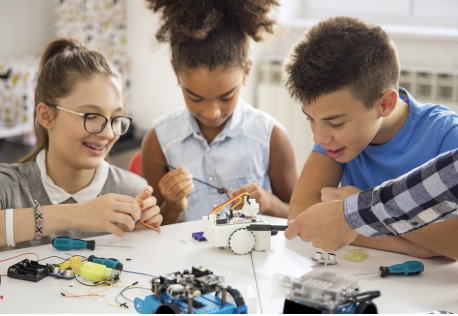In today’s fast-paced world, where change is constant and challenges seem endless, resilience is more important than ever. It’s the ability to adapt, persevere, and bounce back when things don’t go as planned. One area where resilience is increasingly being cultivated is through online learning. With its flexibility, accessibility, and diverse offerings, online education is helping students and professionals build resilience in ways traditional classrooms cannot.
The Power of Flexibility
Online learning offers a level of flexibility that empowers learners to take charge of their education. The ability to learn from anywhere, at any time, means students can balance studies with other commitments, such as work or family. This flexibility fosters self-discipline and time management skills—essential qualities for building resilience.
When you have the freedom to set your own schedule, it’s up to you to create a routine that works for your life. This sense of responsibility encourages a growth mindset, where learners begin to see challenges not as obstacles, but as opportunities for growth. The ability to adapt schedules or course loads also helps students deal with unexpected setbacks, further strengthening their resilience.
Navigating Challenges Independently
One of the most significant ways online learning builds resilience is by encouraging learners to solve problems independently. In traditional settings, students often rely on teachers to provide immediate help. While support is available in online education, learners are often required to troubleshoot, seek out resources, and persist on their own. This builds problem-solving skills and self-confidence, which are vital aspects of resilience.
Whether it’s overcoming technical difficulties, finding additional learning materials, or staying motivated during a challenging assignment, online learners become accustomed to navigating and overcoming obstacles. This “trial and error” approach teaches perseverance, one of the cornerstones of resilience.
Developing Critical Thinking and Adaptability
Resilience isn’t just about bouncing back from failure; it’s also about how we handle change and uncertainty. Online learning environments require students to adapt quickly, whether it’s adjusting to new technologies, switching between courses, or learning in a self-paced manner. The digital landscape is constantly evolving, and online learners must stay flexible and agile to keep up.
Additionally, online education often encourages critical thinking and problem-solving, as students are given the tools to explore subjects from multiple perspectives. This analytical approach helps learners build a mental framework for handling challenges in various aspects of life, further contributing to their overall resilience.
Fostering a Sense of Community
While online learning might initially seem solitary, it often fosters a strong sense of community. Discussion forums, group projects, and virtual classrooms allow learners to connect with peers, share ideas, and offer support. This network of connections can be a source of strength, helping students stay motivated and engaged even when facing difficulties.
The online learning community helps learners understand that they’re not alone in their struggles. Sharing experiences and learning from others can offer new perspectives and solutions, which can be incredibly comforting during tough times. Feeling supported and connected is a crucial aspect of building emotional resilience.
Encouraging Lifelong Learning
Finally, online learning nurtures a mindset of lifelong learning, which is essential for adapting to a rapidly changing world. As new challenges arise—whether in the form of career shifts, technological advancements, or personal growth—resilient individuals are those who continue to seek out knowledge and evolve. Online education, with its wide array of courses and certifications, encourages learners to embrace learning as a continuous process, helping them stay relevant and capable of overcoming future obstacles.
In conclusion, online learning doesn’t just equip individuals with academic knowledge—it nurtures resilience. By providing flexibility, encouraging independent problem-solving, fostering adaptability, and building strong communities, online education prepares learners to face challenges head-on. As the digital age continues to evolve, the resilience cultivated through online learning will be one of the most valuable skills individuals can possess.


